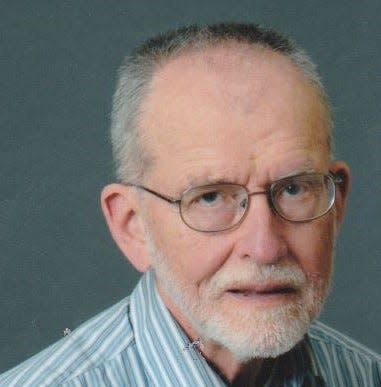Eliminating bad side effects of primary elections: Plan B

Reforms don't always produce expected results. Primary elections were intended to increase voters' control over government. Instead, they have reduced it and created polarization, making serious legislation nearly impossible.
In America's current political system:
• Opinion is distributed along the left-right spectrum in a bell-shaped curve with the largest number of people in the middle.
• There are two major parties and high barriers to development of a third major party.
• The tiny turnout in party primaries is dominated by voters toward the extreme ends of the left-right spectrum.
• Voters in primaries usually prioritize policy agreement with candidates over their ability to win the general election.
• Most election districts are "safe" constituencies for one major party or the other, often because of gerrymandering.
Incumbents therefore worry more about their next primary than about the general election. If they lose the primary, ability to win the general election is irrelevant.
Defending themselves against primary challengers, Republican politicians move to the right and Democratic politicians to the left, leaving them further apart and increasing polarization.
This discourages reasonable compromises with the other party which, seized upon by extremists in their own party, could defeat them in the next primary.
Government thus becomes insensitive to moderates — the vast majority in the middle of the left-right distribution — who are forced to choose between extreme candidates, right or left, in general elections.
Voting for a preferred independent or third party candidate risks electing the major party candidate we like the least, so most of us hold our noses and vote for the major candidate we consider less awful.
An obvious solution would be to abolish primaries and let party leaders again determine their party's candidates for the general election. Party leaders would prefer candidates with broad appeal and would tend to nominate moderates. Public opinion would affect their decisions, but indirectly rather than directly.
However, abolishing primaries is impossible because it would incorrectly be seen as undemocratic. So much for Plan A!
However a Plan B is politically possible and has recently been implemented in Alaska: Keep primaries but reform them to eliminate their harmful side effects.
The Alaska Plan incorporates two basic changes:
First, replace separate party primaries with a single primary in which all voters can participate whether they are party members or not, with the top four candidates for each office advancing to the general election.
Second, ranked-choice voting in the general election. As lucidly reported by CBS News: "It enables voters to choose multiple candidates on the ballot and rank them in order of preference. Unless a candidate receives over 50% of the first-choice vote, the candidate with the fewest first-choice votes will be eliminated and voters' second choices will be reallocated to the remaining candidates.
"This process of elimination and redistribution continues until a candidate wins a majority…."
People will no longer be forced to choose between extreme left wing Democratic candidates or extreme right wing Republican candidates. They can vote for whom they really prefer, just selecting whichever party extremist they dislike least as their second choice as insurance.
Of course, a single primary will be less likely to nominate extremists in the first place, since all voters, not just party members, can vote in it.
The Alaska Plan should also reduce negative campaigning. Slinging mud at a voter's preferred candidate is unlikely to encourage that voter to pick you as second choice.
As soon as a few additional states imitate Alaska, it will change the climate in Congress by electing more senators and representatives for whom fear of being "primaried" no longer prevents them from making reasonable compromises with the other party.
Katherine Gehl designed and is a leading advocate of this reform. She notes that even if the same candidate got elected under the new system, he or she would probably behave differently after being elected. Differently and, I would add, better.
Paul F. deLespinasse is a retired professor of political science and computer science at Adrian College. He can be reached at pdeles@proaxis.com.
This article originally appeared on The Daily Telegram: Paul deLespinasse: Eliminating bad side effects of primary elections
